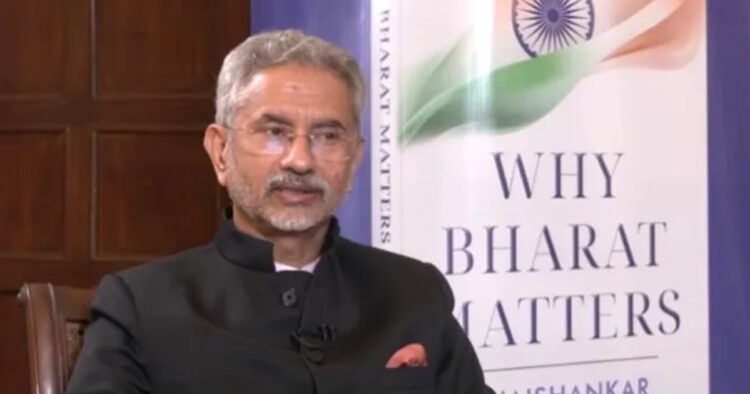External Affairs Minister S. Jaishankar stated that Bharat lost control of Pakistan-occupied Jammu and Kashmir (PoJK) due to past weaknesses or mistakes, blaming Pandit Jawaharlal Nehru, and the Congress party. He made these remarks during an event called ‘Vishwabandhu Bharat.’
When asked about the potential reaction of China if Bharat were to integrate PoJK into its territory, Jaishankar dismissed the idea of any ‘Lakshman Rekha’ (a strict boundary that should not be crossed).
He asserted that PoJK is inherently a part of Bharat and that its current status is a result of past errors. Jaishankar emphasized that Bharat has a legitimate claim over PoJK and highlighted the historical context of China’s involvement in the region.
ALSO READ: “EAM Jaishankar Reaffirms: PoJK Has Always Been and Will Remain Integral to India”
Jaishankar, a seasoned diplomat and former ambassador to China, pointed out that neither Pakistan nor China can rightfully claim sovereignty over PoJK. He noted that China’s collaboration with Pakistan in the region, particularly the construction of the China-Pakistan Economic Corridor through PoJK, disregards Bharat’s legal claims. He stressed that Bharat repeatedly communicated to China that the territory legally belongs to Bharat.
Referring to a 1963 agreement between Pakistan and China, Jaishankar explained that Pakistan transferred a significant portion of PoJK to China to strengthen their friendship.
The agreement includes a provision that China would eventually respect the territorial claims of either Pakistan or Bharat. Jaishankar implied that this agreement acknowledges India’s rightful claim over the area.
Jaishankar underscored the need for Bharat to maintain a strong and confident stance on PoJK. He remarked that there has been a significant change in public opinion and confidence in Bharat’s claim over the region in recent years. He encouraged a robust assertion of Bharat’s position on PoJK.
In addition, Jaishankar touched upon the frequent criticisms by BJP leaders of previous Congress governments, particularly the ceding of the island of Katchatheevu to Sri Lanka under Prime Ministers Nehru and Indira Gandhi. This is part of a broader narrative that questions the territorial decisions made by earlier administrations.

















Comments